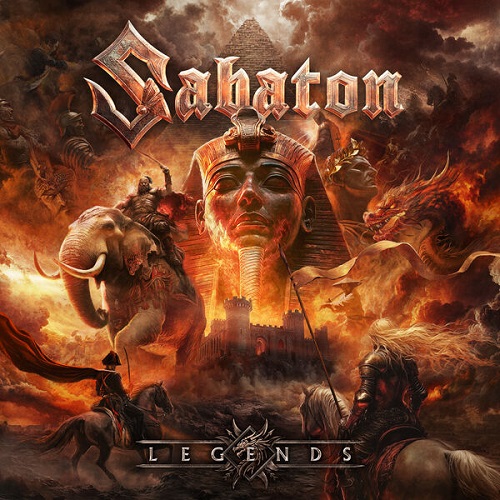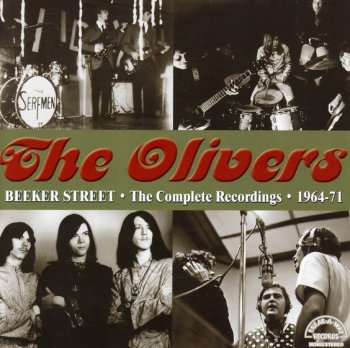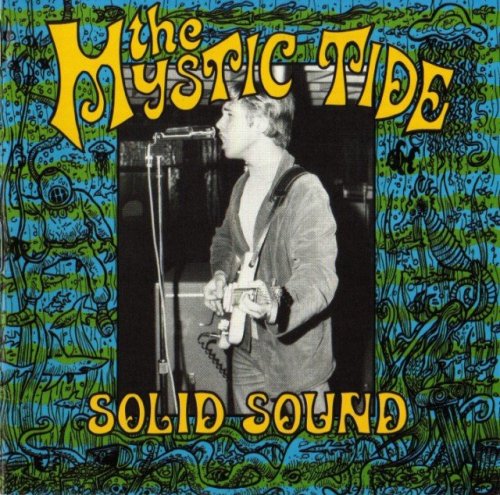MAGNUM «Discography» (24 × CD · Japan 1St Press · 1978-2024)
Performer: MAGNUM / ディスコグラフィー Album / collection: «Discography / ディスコグラフィー» Label: (c)(p) 1978-2024 Jet / Polydor / SPV Source: Rip by KoGGaN™ scans by inet… Official DR value: •13•11•12•12•11•13•14• •12•11•12•11•11•9•11•6/8•6•6•6•5/5•5•5•6• Catalog (Barcode): much… Genre / Style: Rock, Melodic Rock, AOR, Pomp Rock Year (info): 1978-2024 (24 × First Press CD, Collection—) Format: WV (image + .cue) Bitrate: lossless Covers: in archive Amount of tracks: 256 Total time: 20:46:11 Size RAR: ~ 11,51

MAGNUM «Discography» (24 × CD · Japan 1St Press · 1978-2024)
Performer: MAGNUM / ディスコグラフィー Album / collection: «Discography / ディスコグラフィー» Label: (c)(p) 1978-2024 Jet / Polydor / SPV Source: Rip by KoGGaN™ scans by inet… Official DR value: •13•11•12•12•11•13•14• •12•11•12•11•11•9•11•6/8•6•6•6•5/5•5•5•6• Catalog (Barcode): much… Genre / Style: Rock, Melodic Rock, AOR, Pomp Rock Year (info): 1978-2024 (24 × First Press CD, Collection—) Format: WV (image + .cue) Bitrate: lossless Covers: in archive Amount of tracks: 256 Total time: 20:46:11 Size RAR: ~ 11,51
17 10, 2025
Battle Beast - Steelbound 2025
Исполнитель: Battle Beast Альбом: Steelbound Жанр: Heavy Metal, Power Metal Год: 2025 Страна: Finland (Helsinki, Uusimaa) Лейбл: Nuclear Blast Формат: FLAC (tracks) Official DR value: DR6 Разрядность: 24bit / 44.1kHz Stereo Размер: 466 MB Инфо: bandcamp Залито на: XFile (3% восстановление) «Exclusive for Lossless-Galaxy»

Battle Beast - Steelbound 2025
Исполнитель: Battle Beast Альбом: Steelbound Жанр: Heavy Metal, Power Metal Год: 2025 Страна: Finland (Helsinki, Uusimaa) Лейбл: Nuclear Blast Формат: FLAC (tracks) Official DR value: DR6 Разрядность: 24bit / 44.1kHz Stereo Размер: 466 MB Инфо: bandcamp Залито на: XFile (3% восстановление) «Exclusive for Lossless-Galaxy»
17 10, 2025
Sabaton - Legends 2025
Исполнитель: Sabaton Альбом: Legends Жанр: Power Metal Год: 2025 Страна: Sweden (Falun, Dalarna) Лейбл: Better Noise Music Формат: FLAC (tracks) Official DR value: DR6 Разрядность: 16bit / 44.1kHz Stereo Размер: 335 MB Инфо: bandcamp Залито на: XFile (3% восстановление) «Exclusive for Lossless-Galaxy»

Sabaton - Legends 2025
Исполнитель: Sabaton Альбом: Legends Жанр: Power Metal Год: 2025 Страна: Sweden (Falun, Dalarna) Лейбл: Better Noise Music Формат: FLAC (tracks) Official DR value: DR6 Разрядность: 16bit / 44.1kHz Stereo Размер: 335 MB Инфо: bandcamp Залито на: XFile (3% восстановление) «Exclusive for Lossless-Galaxy»
17 10, 2025
Жанры
Lossless Galaxy Release
Русская музыка
--Поп
--Рок
--Панк
--Альтернатива
--Металл
--Рэп, Хип-Хоп, R'n'B
--Джаз и Блюз
--Фолк
--Шансон, Авторская песня
--СССР
Зарубежная музыка
--Pop
--Rock
--Hard Rock
--Progressive & Art-Rock
--Pop-Rock & Soft Rock
--Instrumental Rock
--Heavy, Traditional, Industrial Metal
--Power, Gothic, Sympho Metal
--Thrash, Speed, Groove, Modern Metal
--Death, Melodic Death, Doom, Dark Metal
--Black, Pagan, Folk, Viking Metal
--Alternative
--Punk
--Disco, Eurodance
--Rap, Hip Hop, R'n'B
--Reggae, Ska, Dub
--Jazz, Blues, Soul
--Folk, Country, Ethnic
--Electronic, Ambient, New Wave
--House, Techno, Trance
Другие жанры
--New Age, Relax, Meditative & Flamenco
--Chillout, Lounge, Downtempo, Trip-Hop
--Drum & Bass, Jungle, Breakbeat, IDM
--Classical / Классическая музыка
--Soundtrack
--Музыкальные сказки
Vinyl Rip
HI-Res / DVD-Audio / DTS
--SACD
--DSD
--DVD-Audio
Сборники Lossless-Galaxy
Альбомы 2022
Альбомы 2023
Альбомы 2024
Теги
1st Press 2022 2023 2024 2025 70... AOR Black Metal Blues Blues Rock Bootleg Series Classic Rock Death Metal Discography Exclusive for Lossless-Galaxy Folk Rock Fusion Hard Rock Heavy Metal Hi-Res Japanese Edition Jazz Jazz Rock lossless Melodic Death Metal Melodic Rock Modern Electric Blues Pop Pop Rock Power Metal Prog Rock Progressive Metal Progressive Rock Psych Rock Psychedelic Rock Rock SACD Symphonic Metal Thrash Metal Дискографии от KoGGaN
Архивы
Опрос
В каком формате хотели бы видеть релизы на сайте ?
 Автор: sirk, 18 ноября 2023, Комментариев: 0, Просмотров: 961
Автор: sirk, 18 ноября 2023, Комментариев: 0, Просмотров: 961Majic Ship - The Complete Authorized Recordings (1966-70) [Remastered, 1997]
![Majic Ship - The Complete Authorized Recordings (1966-70) [Remastered, 1997]](/uploads/posts/2023-11/wq9.jpg)
Artist: Majic Ship
Title Of Album: The Complete Authorized Recordings
Year Of Release: 1966-70/1997
Label (Catalog#) : Gear Fab [GF-107]
Country: USA
Genre: Psych Rock, Hard Rock
Quality: FLAC (tracks+scans)
Bitrate: Lossless
Total Time: 01:13:37
Total Size: 426mb(+3%)
Title Of Album: The Complete Authorized Recordings
Year Of Release: 1966-70/1997
Label (Catalog#) : Gear Fab [GF-107]
Country: USA
Genre: Psych Rock, Hard Rock
Quality: FLAC (tracks+scans)
Bitrate: Lossless
Total Time: 01:13:37
Total Size: 426mb(+3%)
Tracks:
-------
01. Night Time Music
02. Mustang Sally (Demo)
03. On The Edge (Demo)
04. Hummin'
05. It's Over
06. Green Plant
07. To Love Somebody
08. On The Edge
09. And When It's Over
10. Sioux City Blues
11. Wed. Morning Dew
12. Life's Lonely Road
13. We Gotta Live On
14. Where Are We Going
15. Free
16. Down By The River / For What It's Worth
17. Nightmare
18. Too Much
19. Cosmo's Theme
20. Blow Me Away - Bonus Track
21. Interviews by Roger Maglio
Personnel:
---------
Gus (Cosmo) Riozzi - Bass, Organ, Vocals
Rob Buckman - Drums
Philip Polimeni - Lead Guitar, Acoustic Guitar
Mike Garrigan - Vocals
Tommy Nikosey - Rhythm, Acoustic Guitar
All thanks to original releaser
-------
01. Night Time Music
02. Mustang Sally (Demo)
03. On The Edge (Demo)
04. Hummin'
05. It's Over
06. Green Plant
07. To Love Somebody
08. On The Edge
09. And When It's Over
10. Sioux City Blues
11. Wed. Morning Dew
12. Life's Lonely Road
13. We Gotta Live On
14. Where Are We Going
15. Free
16. Down By The River / For What It's Worth
17. Nightmare
18. Too Much
19. Cosmo's Theme
20. Blow Me Away - Bonus Track
21. Interviews by Roger Maglio
Personnel:
---------
Gus (Cosmo) Riozzi - Bass, Organ, Vocals
Rob Buckman - Drums
Philip Polimeni - Lead Guitar, Acoustic Guitar
Mike Garrigan - Vocals
Tommy Nikosey - Rhythm, Acoustic Guitar
All thanks to original releaser
Внимание! У Вас нет прав для просмотра скрытого текста.
Изменил: sirk по причине: RE-UP
Похожие новости:
Комментарии отсутствуют
Добавить комментарий!
Информация
Посетители, находящиеся в группе Гости, не могут оставлять комментарии к данной публикации.

![The Troyes - Rainbow Chaser Complete Recordings [1966 / 1968] (2014)](/uploads/posts/2018-07/1532270989_1966-1968-front3.jpg)


